
One of the worst problems that can happen to your Hyundai Veracruz is overheating. Common symptoms of overheating include smoke coming from under the hood, a pegged temperature gauge, and (eventually) a blown head gasket.
If your Veracruz is overheating, stop driving it immediately to avoid damaging the engine.
Ignoring an overheating engine can lead to serious engine problems. A blown head gasket, engine block, or cracked head are much more expensive than a thermostat or water pump.
If your Hyundai Veracruz is overheating, the first thing you should do is check the coolant level.
How Your Veracruz’s Cooling System Works
Your Veracruz’s cooling cycles engine coolant from the engine through the radiator.
- Water Pump– Your Veracruz’s water pump pushes the coolant through the entire system. The coolant starts in the radiator, enters the engine, pulls heat out of the block and heads, and returns to the radiator to be cooled again.
- Thermostat– The thermostat opens up once the engine reaches operating temperature and allows coolant in.
- Radiator– Pulls heat from the coolant before it cycles back into your Veracruz’s engine.
- Radiator Fan– Your Veracruz’s radiator fan pushes extra air onto the radiator when the engine coolant gets too hot. It is needed when driving at lower speeds.
- Radiator Hoses– Connect the radiator to the water pump and engine block.
If any part of this system fails, your Veracruz will eventually overheat.
Hyundai Veracruz Overheating Symptoms
Here are the most common symptoms that your Hyundai Veracruz is overheating.
1. Gauge/Temp Light
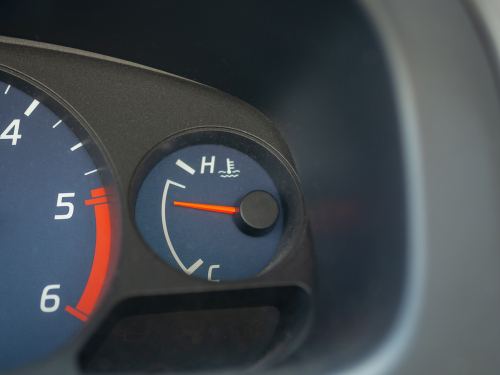
Your Veracruz will be equipped with a temperature warning light and/or a temperature gauge. The most common symptom of overheating is the temperature light coming on.
If this light does come on, make sure that you get off the road quickly and safely. Driving while overheating can cause long term engine damage.
2. White Smoke
If your Veracruz’s engine gets hot enough, the coolant will begin to boil over and manifest itself as steam coming up from under the hood. It does this to relieve the pressure on the cooling system before lasting damage can occur.
3. Blown Head Gasket
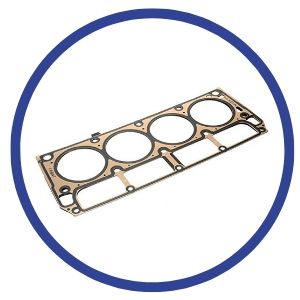
If your Veracruz is run for too long of a period while overheating, the head gasket may blow. Bad head gasket symptoms include white smoke coming from the tailpipe, rough idle, and oil in the coolant. Shutting down before it overheats or as soon as you see it is overheating will usually prevent significant engine damage.
Overheating Causes: Hyundai Veracruz
The first thing that you need to do is check your Veracruz’s overflow container. If it is full, you can rule out low coolant or a coolant leak, and skip the next section.
Low Coolant
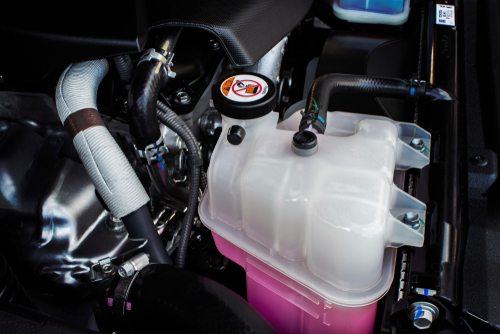
Low coolant is the most common reason that your Veracruz will overheat. Low coolant is a symptom of a cooling system leak of some kind. It doesn’t just randomly disappear.
Here are some of the reasons that your coolant may run low:
- Radiator damage
- Cracked/bad radiator hose
- Bad radiator cap
- Thermostat housing damage
- Water pump gasket
Your Veracruz’s radiator could be leaking from the front or back. It can also leak from the cap. If that’s the case, you can fill it and replace the cap.
Make sure that you don’t take the radiator cap off when the engine is warm.
In fact, you really should not need to take it off at all unless the coolant is leaking from the cap itself.
A slow leak can be more difficult to find than a quick leak since the coolant can evaporate before it has a chance to show itself.
If you are losing fluid but can’t readily see the leak, UV dye is a great tool to locate it. It really does work well. If you aren’t finding anything even with the dye, look at the rear exhaust. Do you have a lot of white smoke? That’s a very good indication that you have a blown head gasket.
Bad Radiator Fan

While going down the road, the movement of air through your Veracruz’s radiator will usually be enough to cool the engine without the help of the fan.
It’s when you are hardly moving that the radiator fan is going to do the work of keeping air flowing into the radiator.
If your engine is overheating in traffic, and the coolant is full, it’s likely a bad radiator fan or a faulty water pump causing your Veracruz to run hot.
If you have a temperature gauge, you’ll notice that the temp will usually cool down when you get onto the highway and get moving into clean air. When the cooling system itself is bad, usually the opposite will happen.
Bad Thermostat
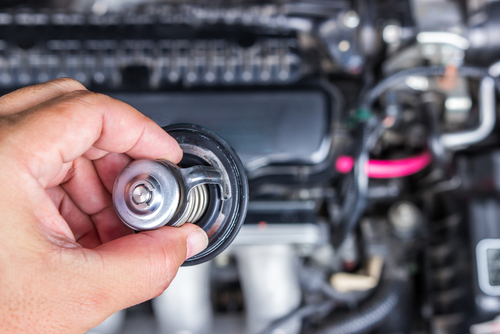
One of the most common reasons that a vehicle overheats is a bad thermostat. If your radiator overflow is full (and your radiator fan is kicking on), it is very likely that a bad thermostat or bad water pump is causing your Veracruz to overheat. Of these two, the thermostat fails more often than the water pump. It’s also much more affordable and easier to get to.
Bad Water Pump
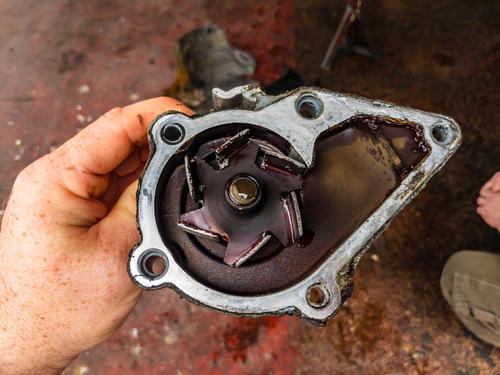
The water pump is driven by the serpentine belt attached to the Veracruz’s engine. Has your belt been squeaking when you start up or when you are on the road? That can be an indication of a bad serpentine belt.
When your water pump does go bad, it will often leak water. Or it’ll make a grating noise. This is due to the bearings inside of it going bad. Here’s a great video on how to tell if your water pump is bad.
A good trick to tell if the water pump may be bad is to put it into neutral and rev the engine up a few thousand RPM for a few seconds. If the temperature went down, that could indicate a bad water pump. Why? A dying pump may get spinning enough to move the coolant with the increase in RPM.
Conclusion: Veracruz Overheating Symptoms & Causes
There can be a lot of different reasons that your Hyundai Veracruz’s engine would overheat. We hope this helps you find out why.

